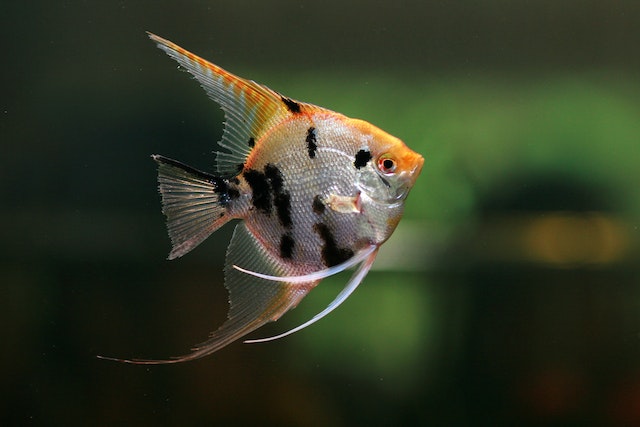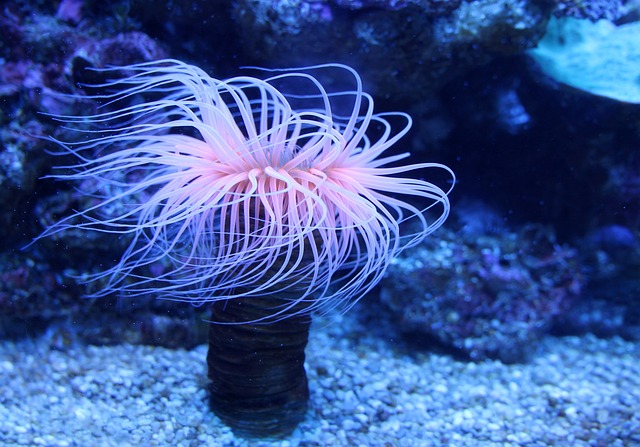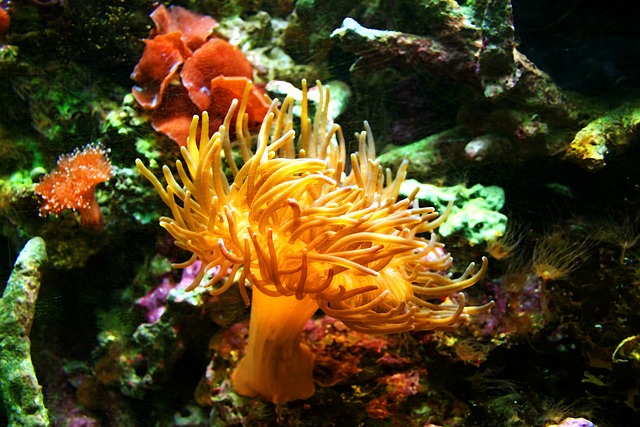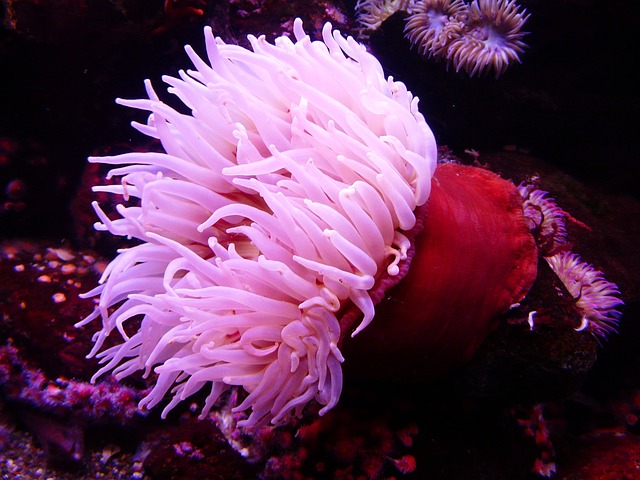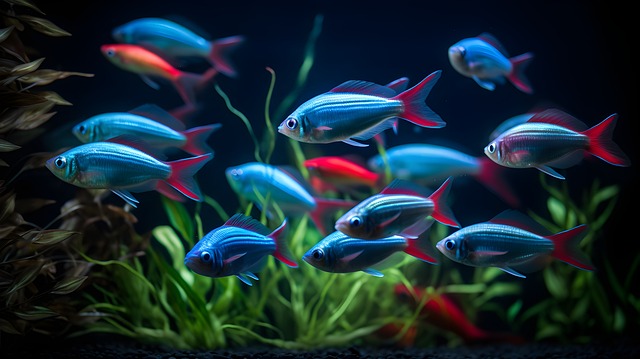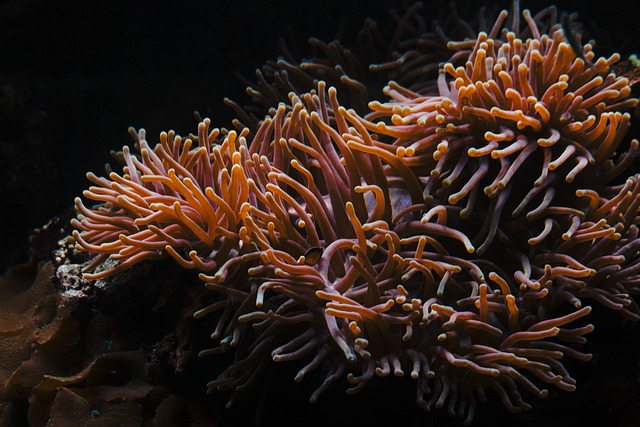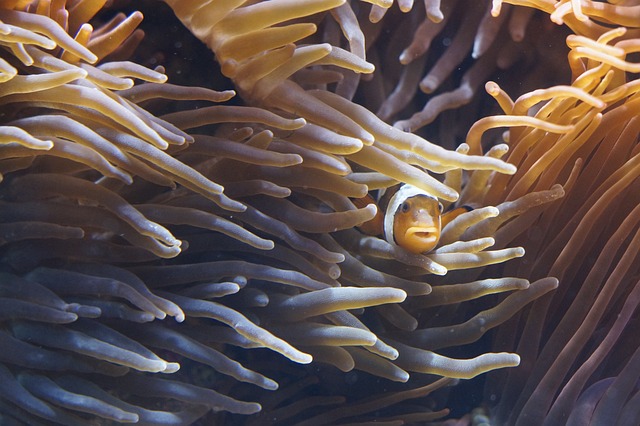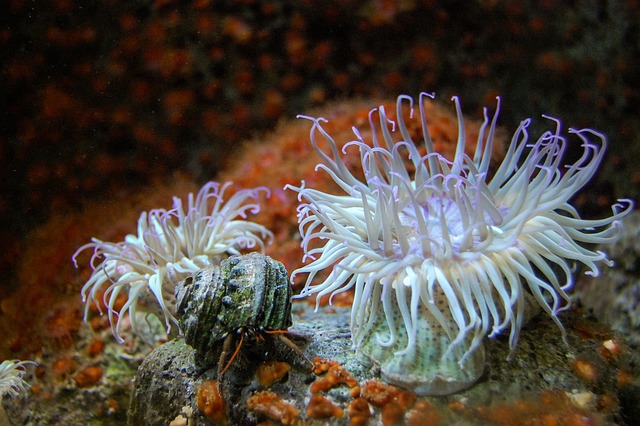There are several reasons why an angel fish may be in the corner of the tank.
One possibility is that the fish is feeling stressed or anxious. This could be due to several factors, such as poor water quality, overcrowding in the tank, or aggressive tank mates.
Another possibility is that the fish is simply resting or hiding. Angel fish are known to be shy creatures, and they may retreat to a quiet corner of the tank when they feel overwhelmed or threatened.
Understanding the reasons behind this behavior can help owners take the necessary steps to ensure their angel fish is happy and healthy.
Behavioral Reasons
Territoriality
Angel fish are known to be territorial creatures. They may become aggressive towards other fish in the aquarium, especially if they feel their territory is being invaded.
When an angel fish feels territorial, it may retreat to a corner of the tank to defend its space.
To reduce territoriality, providing ample space for each fish in the aquarium is recommended. Adding plants, rocks, or other objects can also help to create separate territories for each fish.
Stress
Stress can also cause an angel fish to retreat to a corner of the tank. Stressful situations can include changes in water temperature or pH levels, overcrowding, or sudden changes to the aquarium environment.
Maintaining a stable environment for the fish is essential to reduce stress. Ensure the water temperature and pH levels remain consistent, and avoid overcrowding the tank.
Gradual changes to the environment are also less stressful for the fish.
Shyness
Some angel fish may be naturally shy and prefer to retreat to a corner of the tank. This behavior is more common in juvenile fish but can also occur in adult fish.
To help a shy angel fish feel more comfortable, providing hiding places in the aquarium is recommended. Adding plants, rocks, or other objects can create a sense of security for the fish.
It is also essential to avoid sudden movements or loud noises around the aquarium, as this can startle the fish and cause them to retreat to a corner.
In conclusion, there are several behavioral reasons why an angel fish may be in the corner of the tank. These include territoriality, stress, and shyness.
By providing a comfortable and stable environment for the fish and creating separate territories and hiding places, the fish can feel more secure. They may be less likely to retreat to a corner.
Environmental Reasons
Water Quality
One possible reason why an angel fish might be in the corner is due to poor water quality. Fish are sensitive to environmental changes and require a clean and stable habitat to thrive.
If the water quality is poor, it can cause stress and illness in fish, leading to them hiding in a corner.
To ensure good water quality, it is essential to regularly test the water parameters such as pH, ammonia, nitrite, and nitrate levels.
If any of these levels are off, it can indicate a problem with the water quality. Regular water changes and proper filtration can help maintain a healthy environment for fish.
Tank Size
Another possible reason an angel fish might be in the corner is the small tank size. Fish need adequate space to swim and explore their environment.
If a tank is too small, it can cause stress and boredom in fish, leading to them hiding in a corner.
Providing at least 10 gallons of water per adult angel fish is recommended. Providing hiding places and decorations is also essential to create a stimulating environment for the fish.
Temperature
Lastly, the temperature can also determine why an angel fish might be in the corner. Fish are cold-blooded animals and require a specific temperature range to maintain their metabolism and immune system.
If the water temperature is too high or too low, it can cause stress and illness in fish, leading to them hiding in a corner.
The ideal temperature range for angel fish is between 75-82°F. It is essential to use a reliable thermometer and a heater to maintain a consistent temperature in the tank.
Overall, ensuring good water quality, adequate tank size, and maintaining a proper temperature range can help prevent an angel fish from hiding in a corner.
Health Reasons
Disease
An angel fish in the corner could be a sign of an underlying health issue. One common cause is a bacterial or fungal infection.
These infections can cause the fish to become lethargic, lose its appetite, and seek quiet resting places. If left untreated, the infection can spread and become fatal.
Another possible cause of a fish being in the corner is parasites. Parasites can cause the fish to become stressed and uncomfortable, leading it to seek a quiet place to rest. If the fish is scratching against objects in the tank, it may be a sign of parasites.
Injury
If the fish has sustained an injury, it may retreat to a quiet corner to rest and recover. Injuries can be caused by aggressive tank mates, sharp objects in the tank, or even by jumping out of the water.
Injuries can range from minor scratches to severe wounds requiring medical attention.
It’s important to note that if a fish is in the corner, it may not necessarily be a sign of a health issue. Some fish prefer to spend time in quieter areas of the tank, especially if other fish are more active or aggressive.
However, if the fish is exhibiting other signs of illness or distress, it’s essential to take action to identify and treat the underlying cause.
Conclusion
In conclusion, there are several reasons why an angel fish might be in the corner of its tank. It could be due to stress, lack of hiding places, or poor water quality. It is essential for fish owners to regularly monitor their tank’s water parameters and maintain a clean and healthy environment for their fish.
Providing plenty of hiding places, such as plants and decorations, can help reduce stress levels for fish and provide a sense of security. Additionally, ensuring that the tank is the appropriate size for the fish and that there are no aggressive tank mates can help alleviate stress.
It is also important to note that some fish may naturally prefer to spend time in a specific tank area. Observing the fish’s behavior and reporting any changes can help determine if an underlying issue needs to be addressed.
Taking a proactive approach to fish care and promptly addressing any issues can help ensure the health and well-being of angel fish and other aquarium inhabitants.

